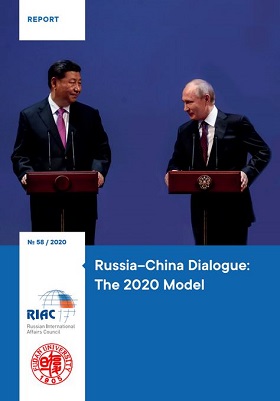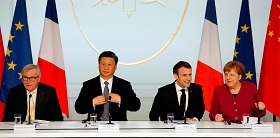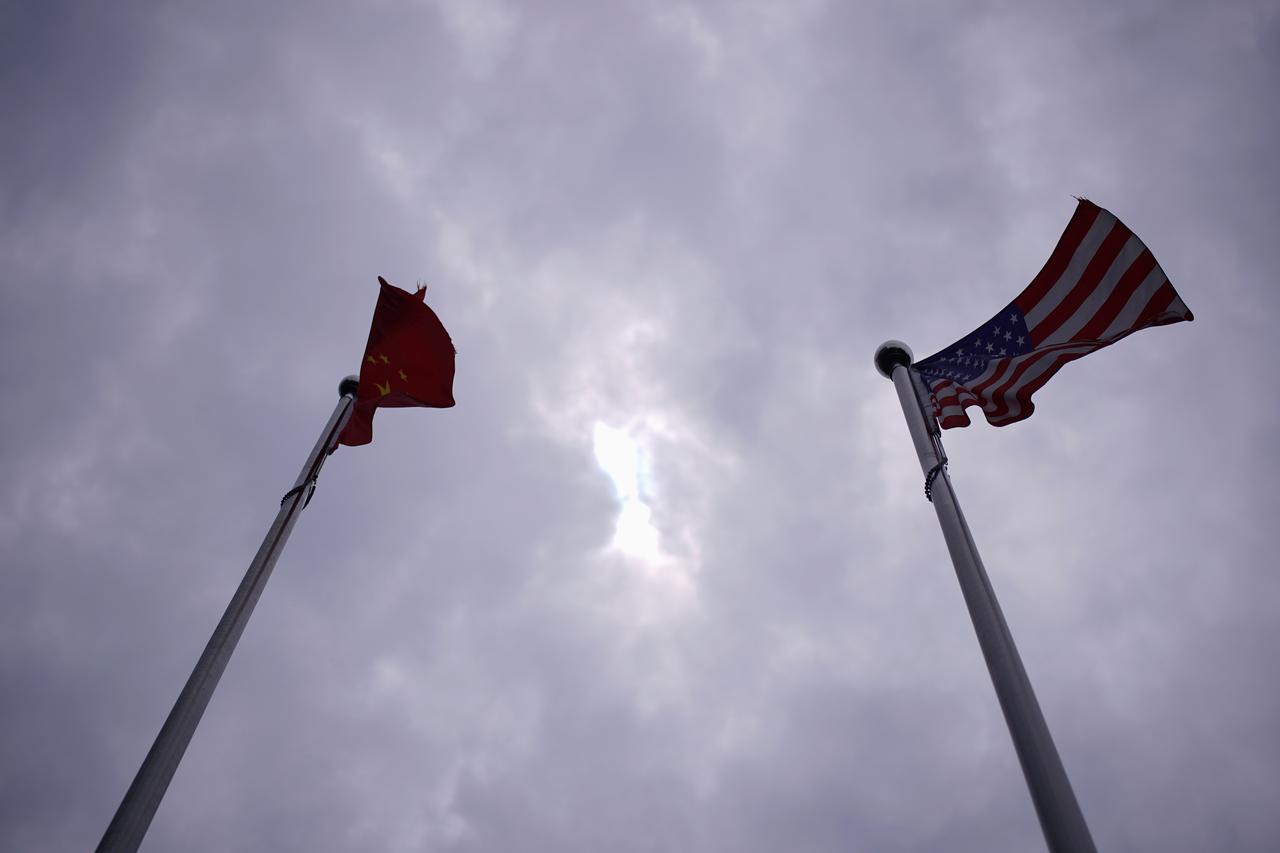Russia-China relations have been steadily improving since at least 2013, when the leaders of both countries presented a joint statement calling for deepening bilateral relations of “comprehensive strategic partnership of coordination.” This formula has been modified with an addition of the “new era,” signifying both countries recognising new global challenges and the changing geopolitical environment. COVID-19 has largely contributed to the intensification of certain trends, including antagonism with the U.S. and the pursuit of more robust bilateral ties.
Russia-China relations represent a "strategic partnership,” which means that the two countries view themselves as partners on strategic issues. Indeed, on a majority of topics, be it global governance, world economic structure, geopolitics or security, Russia and China are on the same page. Many of them are of strategic significance pertaining to both sides. Both countries enjoy fruitful cooperation on multilateral platforms such as BRICS, SCO and the UN.
As long as Russia and China base their partnership on coinciding strategic interests and avoid any ubiquitous and provocative moves, their relations are likely to remain in the current burgeoning state or under the best circumstances can even be elevated to a higher level. Overall, during the first half of the year, relations between China and Russia were challenged several times. Despite some small cracks, like decreasing trade and frictions regarding energy projects in the South China Sea, their flawless mutual propaganda remains untarnished. As long as they can maintain a close and mutually beneficial bilateral tie, they should be able to endure any future challenges with ease.
Russia-China relations have been steadily improving since at least 2013, when the leaders of both countries presented a joint statement calling for deepening bilateral relations of “comprehensive strategic partnership of coordination.” This formula has been modified with an addition of the “new era," signifying both countries recognising new global challenges and the changing geopolitical environment. COVID-19 has largely contributed to the intensification of certain trends, including antagonism with the U.S. and the pursuit of more robust bilateral ties.
If before both countries would challenge and combat U.S. hostility (economic sanctions, political pressure, adversary rhetoric, etc.) mainly on their own, they are now more inclined to align and coordinate actions to elaborate more coherent voices towards the West. In late July, Russia's Ministry of Foreign Affairs stressed that the U.S. could not drive a wedge between Russia and China by expecting Moscow to join its anti-China alliance. Rather, Russia views further improvement of relations with China as a major factor that will contribute to stability in global politics.
In May, the Chinese Ministry of Foreign Affairs noted that, amid the virus outbreak, bilateral support between Russia and China became a safe fortress for "political viruses.” During a telephone conversation in July, Putin and Xi stressed that the agenda for the strategic partnership in Russia-China relations was materialised during the pandemic in the form of mutual help provided at a critical moment.
China and Russia have recently demonstrated the historical legacy of their close relations through the publication of a co-authored report by Russian and Chinese ambassadors to the U.S. The report unambiguously states that all countries must combine their efforts to tackle pressing issues such as climate change, terrorism, world pandemics, economic downturns, etc. These concerns are all focal points in which Russia and China have achieved mutual understanding.
Notably, even during the very vague political gridlock of the Belarusian leadership in the aftermath of the August presidential elections, China and Russia immediately demonstrated their support to the re-elected president Lukashenko. While President Putin congratulated the Belarusian president with a telegram, President Xi-Jinping opted for a personal phone call, during which he reassured Mr Lukashenko of China's strong commitment to "push forward Chinese-Belarusian comprehensive strategic partnership." Such profound political signals did not go unnoticed in Minsk, which has expressed gratitude to Russia and China for their support during these challenging times. China’s position on Belarus is important for Russia, as Moscow regards Belarus as its closest and most faithful ally. Belarus is now moving towards a higher level of political and economic integration with Russia, becoming a "Union State."
As a signal of recognition and respect for Chinese core interests, Russia extended its support to China over Hong Kong, which came under the global spotlight following the introduction of the National Security Law in June. In a very crucial moment for China, when it received widespread criticism from all other major powers, Russia bluntly stressed that "the situation in Hong Kong as a purely internal matter of China," thus fending off all speculation on the city’s juridical status.
China and Russia have recently vowed to strengthen their coordination on international platforms, which was seen in early July in the UN during their opposition to the extension of cross-border aid in Syria. The opposition to the U.S. initiative in June within the UN Security Council to reimpose an arms embargo on Iran following the break-up of the 2015 nuclear deal was another display of harmonised action. Multiple international issues were touched upon during the meeting between the Russian and Chinese foreign ministers on September 11. Both countries reaffirmed the “closeness of their views on effective solutions to them," and stressed that “the destructive character of Washington’s actions undermines global strategic stability." Overall, the meeting once again confirmed the shared views of Russia and China in both the multilateral and bilateral dimensions.
The Russia-India-China format has made significant progress after a period of relatively little activity. The latest gathering of the RIC group took place in June. At that time, Moscow highlighted that India-China border conflicts were to be solved based on bilateral agreements only. Recently, Moscow has initiated negotiations between the defence ministers of India and China in order to find conflict mitigation solutions. As a result, Chinese and Indian officials met for the first time since the border dispute in May.
By organising peace talks involving China and India, Russia is playing a critical role in regional affairs. The upcoming meeting of the respective ministers of foreign affairs reinforces this statement. Meanwhile, the U.S. has repeatedly pitched its own candidacy as an intermediary, with the most recent attempt in early September. Russian media positioned the Moscow-hosted China-India meeting on September 10 as a rare foreign policy success. During their “frank and constructive” discussion in Moscow, India and China reached an important agreement to deescalate border tensions which are not in “the interest of either side.”
Economically, Sino-Russian cooperation experienced a COVID-19 blow, with trade volume falling by 5,6 per cent in June, amounting to USD 50 billion. Although it may have a tangible impact on the annual statistics, moving the 2019-set milestone for 2024 away from the predicted USD 200 billion in trade follows the global trend of economic contraction, with consumer demand in free fall. For example, the overall volume of Chinese foreign trade from January to June dropped by 6,6 per cent. However, this trade contraction reflects more about global trade dynamics at the moment than changes in Russia-China relations.
As a recent sign of combined efforts to contain U.S. global ambitions, Russia and China were able to decrease U.S. dollar transaction for trade to its historical minimum – from 51 per cent in 2019 to 46 per cent in 2020. The same trend for intensified bilateral cooperation can also be seen in the energy sphere. Following the successful launch of "Power of Siberia" last December, the Russian state energy giant "Gazprom" is embracing a new audacious initiative, the "Power of Siberia-2" gas pipeline. The project will connect Russia, China and Mongolia. On behalf of the President of Russia, Gazprom started the design and survey work on the project in May.
Energy cooperation remains a crucial element of bilateral relations. Fresh statistics show that in July, Russia once again secured its position as the largest importer of oil to China, with a 30 per cent spike. This amounted to 7.38 million tons (compared to 2019). In April, Russia took over Saudi Arabia as the biggest crude oil supplier, delivering 7.2 million tons. This is 18 per cent more than in 2019.
Russia-China relations represent a “strategic partnership,” which means that the two countries view themselves as partners on strategic issues. Indeed, on a majority of topics, be it global governance, world economic structure, geopolitics or security, Russia and China are on the same page. Many of them are of strategic significance pertaining to both sides. Both countries enjoy fruitful cooperation on multilateral platforms such as BRICS, SCO and the UN.
Nevertheless, despite their flawless facade, Russia-China relations have a weak spot - their difference in strategic and national interests. This is normal for global powers. For example, Beijing can never compromise its core national interests such as the South China Sea (SCS), Xinjiang, Taiwan, and Tibet, even to please its tried and tested partner, Moscow. This explains why China has repeatedly pressured Vietnam to halt all oil extraction activities in the SCS over the last two years. This has resulted in Vietnam suspending business cooperation in the SCS with the Russian state oil giant, Rosneft. On the other hand, Russia will never put its core interests at risk (especially concerning territorial integrity), irrespective of Beijing's rhetoric concerning Russian Far East territories.
As long as Russia and China base their partnership on coinciding strategic interests and avoid any ubiquitous and provocative moves – their relations are likely to remain in the current burgeoning state or under the best circumstances can even be elevated to a higher level. Overall, during the first half of the year, relations between China and Russia were challenged several times. Despite some small cracks, like decreasing trade and frictions regarding energy projects in the South China Sea, their flawless mutual propaganda remains untarnished. As long as they can maintain a close and mutually beneficial bilateral tie, they should be able to endure any future challenges with ease.







